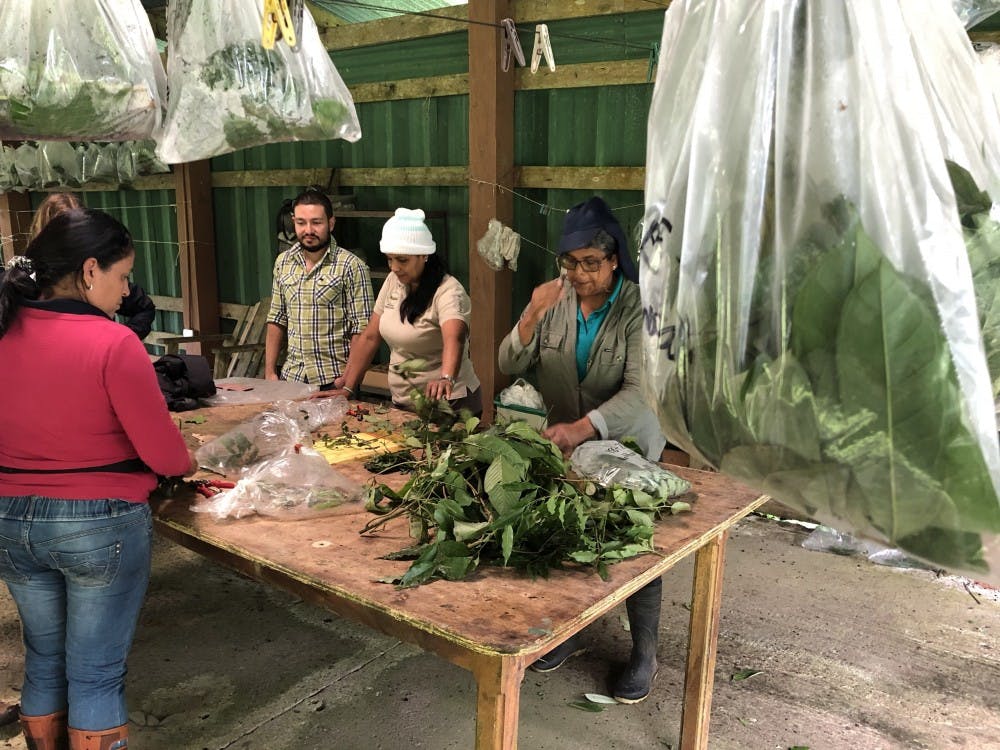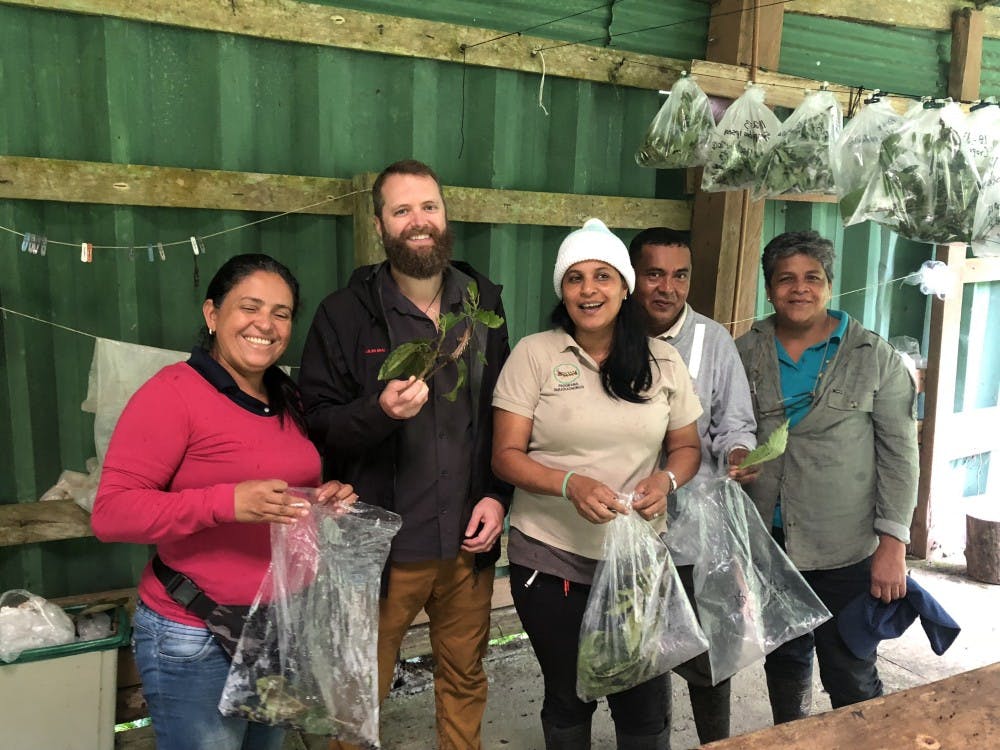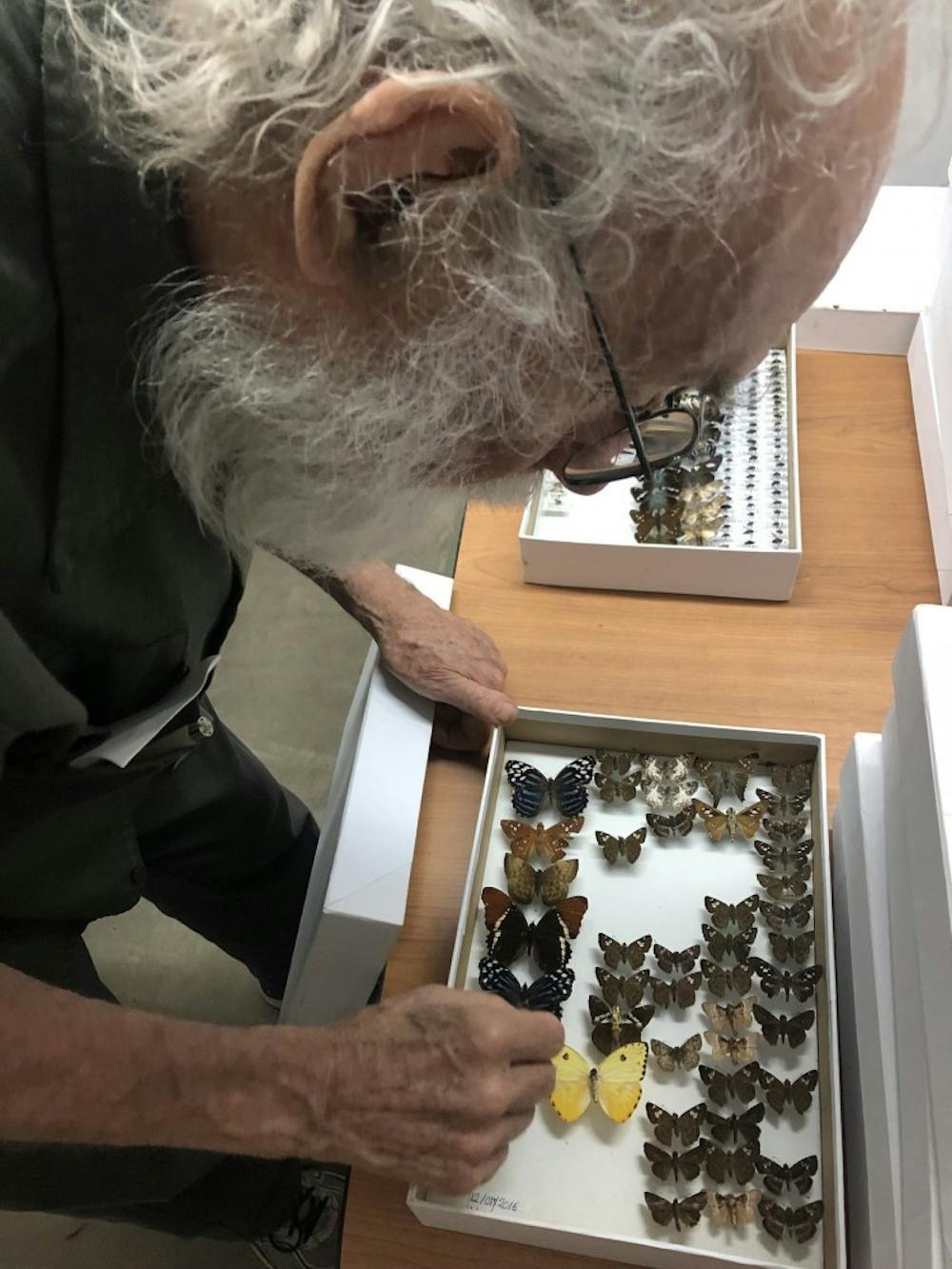
The new Penn Global Seminar, "Field Studies in Tropical Biodiversity and Conservation" (BIOL 165), will allow students to travel to Costa Rica for 10 days to learn about the Costa Rican ecosystem and conduct their own ecological research. (Photo from Bryon Sherwood)
Students taking Penn's newest global seminar next semester will be able to visit Costa Rica over winter break.
A new Penn Global Seminar BIOL 165, "Field Studies in Tropical Biodiversity and Conservation," will allow students to travel to Costa Rica for 10 days to learn about the country's ecosystem and conduct their own ecological research. The course will be offered for the first time next semester and is the first biology course in the Penn Global Seminars program, which offers a range of classes that include a travel component during winter, spring, or summer break.
During their 10-day trip to Costa Rica, students in the course will study in Area de Conservacion Guanacaste, a protected site that is often used for field research. They will learn to conduct their own research, identify environmental issues, and prepare policy recommendations to protect the country's ecosystem. Biology professor Daniel Janzen and his wife Winnie Hallwachs, who have worked at the site since the late 1960s training Costa Ricans to identify aquatic and terrestrial species, helped design and prepare the course.
The course will be taught by Byron Pedler Sherwood, a senior fellow in the Biology Department, and will be offered to students from all four undergraduate schools with no prerequisites. Sherwood currently teaches BIOL 464, "Field Studies in Aquatic Microbial Ecology," where students test the activity, health, and diversity of bacterial communities in water sites throughout the Philadelphia area.
“When I came to Penn, my plan was to teach field courses,” Sherwood said. “I would like to take students to a field that is a little farther than just the Philadelphia region.”

The class will be taught by Byron Pedler Sherwood (second from left).
Mecky Pohlschröder, the undergraduate chair of Penn's Biology Department, said the course can be helpful to students from all four undergraduate schools because environmental issues affect various fields.
"I think that for a lot of students that are interested in policymaking and even business, it can be extremely useful because you are providing a business model basically,” she added.

Enrollment for the course is capped at 18 students and is application-based. (Photo from Bryon Sherwood)
However, Pohlschröder said it is “beneficial for students to have some background in biology” since they will need to write group research proposals as part of the course.
Enrollment for the course is capped at 18 students and is application-based. Penn Global Seminars Manager Laurie Jensen said students interested in any Penn Global Seminar must complete an application that will be reviewed by both Penn Global staff and the course professor. Jensen added that the seminars generally have an acceptance rate of 50 percent and that student interest is one of the most important factors in determining acceptance.
“I am particularly looking for students that are excited about the topic and have some particular reasons why the course is important to their personal and career goals,” Sherwood said.
Given the diversity of students expected to enroll in the course, Pohlschröder encouraged students to work together and “benefit from each other’s different strengths.”
“Students should really take advantage of learning everything before they are going [to Costa Rica], because it is such a short time that they are going for,” Pohlschröder added. “It is a fantastic opportunity but be prepared when you go so you can really get the most out of it.”
The Daily Pennsylvanian is an independent, student-run newspaper. Please consider making a donation to support the coverage that shapes the University. Your generosity ensures a future of strong journalism at Penn.
Donate







